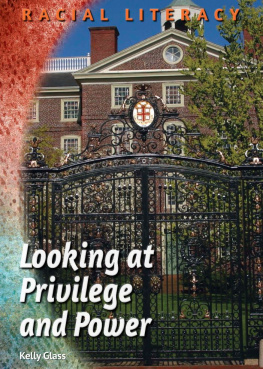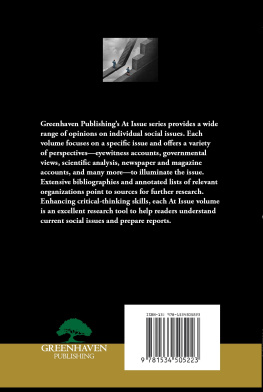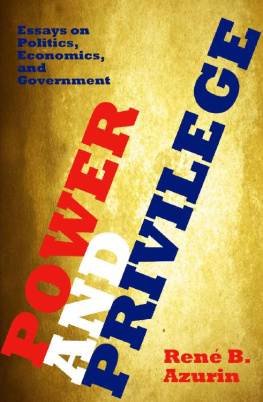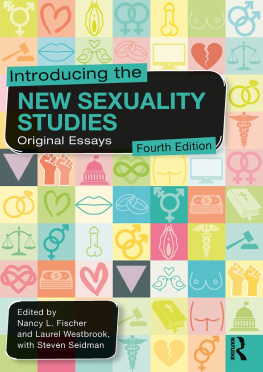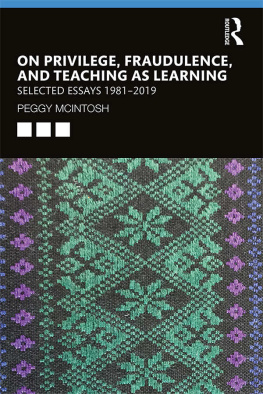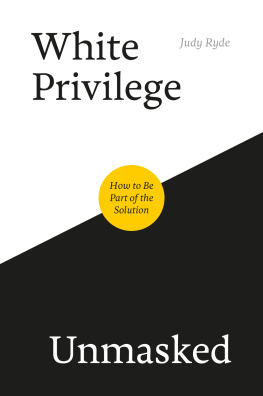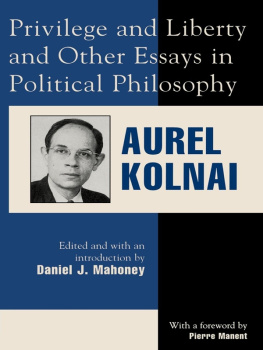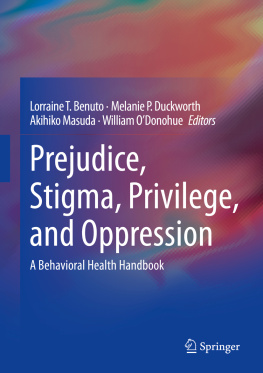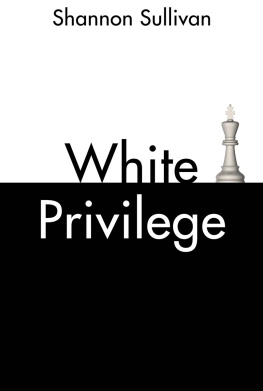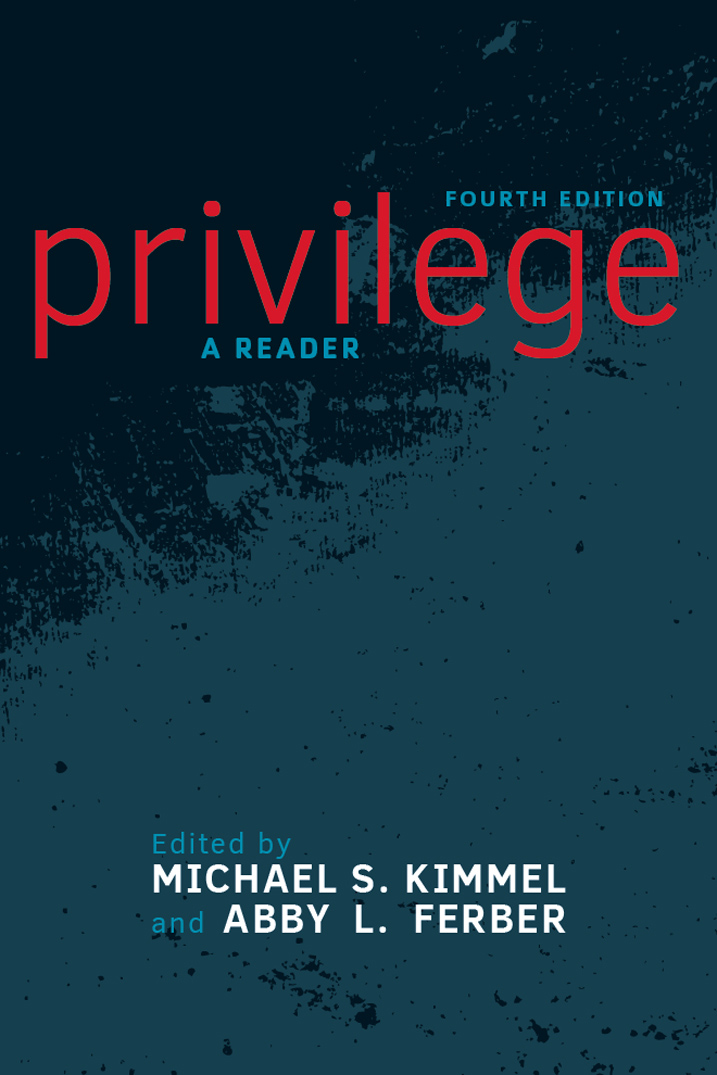

Westview Press was founded in 1975 in Boulder, Colorado, by notable publisher and intellectual Fred Praeger. Westview Press continues to publish scholarly titles and high-quality undergraduate- and graduate-level textbooks in core social science disciplines. With books developed, written, and edited with the needs of serious nonfiction readers, professors, and students in mind, Westview Press honors its long history of publishing books that matter.
Copyright 2017 by Westview Press
Published by Westview Press,
An imprint of Perseus Books, a Hachette Book Group company
2465 Central Avenue
Boulder, CO 80301
www.westviewpress.com
All rights reserved. Printed in the United States of America. No part of this book may be reproduced in any manner whatsoever without written permission except in the case of brief quotations embodied in critical articles and reviews.
Every effort has been made to secure required permissions for all text, images, maps, and other art reprinted in this volume.
Westview Press books are available at special discounts for bulk purchases in the United States by corporations, institutions, and other organizations. For more information, please contact the Special Markets Department at the Perseus Books Group, 2300 Chestnut Street, Suite 200, Philadelphia, PA 19103, or call (800) 810-4145, ext. 5000, or e-mail .
Library of Congress Cataloging-in-Publication Data
Names: Kimmel, Michael S. | Ferber, Abby L., 1966- | Kimmel, Michael S., editor. | Ferber, Abby L., 1966- editor.
Title: Privilege: a reader / edited by Michael S. Kimmel, Abby L. Ferber.
Description: Fourth Edition. | Boulder, CO: Westview Press, 2016. | Revised edition of Privilege, 2014. | Includes bibliographical references and index.
Identifiers: LCCN 2016009658 (print) | LCCN 2016023289 (ebook) | ISBN 9780813350400 (e-book)
Subjects: LCSH: Social classesUnited States. | United StatesSocial conditions1980- | BISAC: SOCIAL SCIENCE / Sociology / General. | SOCIAL SCIENCE / Gender Studies. | SOCIAL SCIENCE / Social Classes.
Classification: LCC HN90.S6 P75 2016 (print) | LCC HN90.S6 (ebook) | DDC 306.0973dc23
LC record available at https://lccn.loc.gov/2016009658
10 9 8 7 6 5 4 3 2 1
We dedicate this edition to all those
who are learning, daily, to be better allies.
Table of Contents
Guide
contents
Confronting privilege can be extremely uncomfortablea productive and healthy discomfort, to be sure, but discomfort just the same. And once the process of confrontation has begun, its difficult to resist what a colleague once called premature self-congratulation, the often earnest, if insufferable, proclamations of the newly converted. Thanks so much for bringing this privilege thing to our attention, we might be tempted to say. Well take it from here.
The ability to live with that discomfort and without that preachy self-congratulatory tone is the hallmark of the works we have collected here. It is a struggle, both political and stylistic, and we hope that these essays will prove as unsettling and as discomfiting as they have been for the editors.
After all, we found our way to these essays, and to editing this book together, because we were so unsettled and challenged by confronting our own unearned privilege. The essays in this volume proved both provocative and helpful, not only as we first began to think our way through these issues, but also as we continue the process of confronting privilege today.
A Note to Students
If you are reading this book, odds are your instructors are already themselves engaged in this process. Dont be afraid to talk about it, and to disagree. The way weve organized the book is sort of like peeling back the layers of an onionthe first articles describe the initial shock of realizing that in some way you, too, have experienced both privilege and the absence of privilege. Perhaps you are a working-class student on a scholarship at a private college or university where the students are so wealthy that they often drive nicer cars than the professors. But perhaps you are also white, or straight, or male. But then again, you might be Muslim or Jewish and experience feelings of exclusion around Christmastime. Or an older student, or disabled.
Subsequent sections complicate matters by looking at the ways these different statusessexuality, ability, race, class, gender, religion, and the likeeach modify and shape the others. Such complication changes the or in the preceding paragraph to an and, or a but also: What if you are black and female? What if you are white but also Jewish? As youll see, these statuses sometimes reinforce each otheras in straight, white, Protestant maleand sometimes collide and undercut each other.
Some years ago, the great sociologist Erving Goffman described the ways these statuses all might coalesce into the perfect American malethe one who really has all the privilege:
In an important sense there is only one complete unblushing male in America: a young, married, white, urban, northern, heterosexual, Protestant, father, of college education, fully employed, of good complexion, weight, and height, and a recent record in sports.... Any male who fails to qualify in any one of these ways is likely to view himselfduring moments at leastas unworthy, incomplete, and inferior.
Erving Goffman, Stigma (Englewood Cliffs, NJ: Prentice-Hall, 1963), 128.
This dynamic is critical. Goffman is saying that every single person will, at some point in life, fail to qualify and will feel, at least at moments, unworthy, incomplete, and inferior. It is those feelings of inadequacy and inferiority that we think often motivate us to resist facing the kinds of privilege we do have, because we are so painfully aware of the places and arenas in which we dont measure up. Privilege is far less visible to us than its absence; when we are discriminated against, it is much more painfully obvious than when we belong to the groups that benefit from that discrimination.
One of the editors of this book has a friend, Jane, who is a black lesbian. Jane says that when she hangs out with a bunch of her black friends, all she can think about is being a lesbian who doesnt fit in. (That is, because virtually all the black people at her school seem to be straight.) But when Jane hangs out with her lesbian friends, all she can think about is how shes black and doesnt fit in (because all the lesbians at her school are white). We see where we dont fit in far better than where we do.
One more thing: Sometimes confronting privilege can be painful, but it can also be really funny. When you have a spare 2:40, check out this video of the comedian Louis C.K. describing the moment he realized the privilege he gets for being a white man in America (warning: NSFWor school!): www.youtube.com/watch?v=xqbw4nHrHc0.
Feeling Conscious, Not Guilty
Realizing that you do have privilegesno matter who you aredoes not mean feeling miserable and guilty for the rest of your life, just conscious: of both the advantages and the disadvantages that every one of us has because of the statuses we occupy, some by birth and some by choice. Conscious that there simply are no level playing fields anywhereand that every single arena, whether class or race or gender or sexuality or other social identities, is not just a source of identity but also a site of social inequality that is arbitrary and unfair. Knowing how it feels to experience that inequality in one arena should inspire you to help level the playing fields in all arenas.


